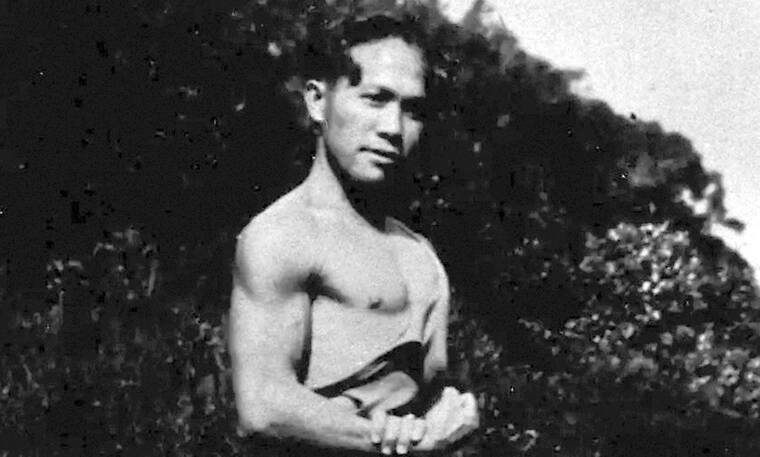WAIMEA — “Cane Fire,” the debut non-fiction feature by director Anthony Banua-Simon intersperses the real voices of Kaua‘i people with the powerful interests that seek to define it for themselves.
The film, which held its second Kaua‘i showing at the Historic Waimea Theater this weekend, covers more than 100 years of Kaua‘i history, from the overthrow of the Hawaiian monarchy to union organizing during plantation days, to the transition to the tourism economy that we know today.
Framing the narrative are clips from early Hollywood that place locals in the role of extras, playing behind Elvis in “Blue Hawai‘i” or John Wayne in “Donovan’s Reef.”
“Cane Fire” shows that these films — which often come across as corny and out-of-touch — are intentionally designed either to push narratives reinforcing the power of the sugar plantations, to disparage unions, or to sell the idea of Kaua‘i to tourists.
“I was drawn to this Hollywood History and how it was used,” said Banua-Simon, speaking to The Garden Island this week. “They’re really fighting these ideological battles.”
Through conversations with working-class locals the film pulls back the veil and reveals a more true story of the island.
“Did you go to the movies much?” Banua-Simon asks one of the interviewees.
“Not much, because we had to work,” he responds.
Central to this is the history of organized labor which, through interviews with labor leaders including Banua-Simon’s Great-uncle Henry, a former organizer, is shown to have once had a tremendous influence on the island.
Alfredo Castillo, a friend of Henry, and union leader during the plantation era, describes a program in which the union negotiated with management for land to build homes on, a request which was eventually granted.
The story travels through the decline of union labor, which left many workers out in the cold. At one particularly hard-hitting moment, the film shows a Kaua‘i worker shortly after losing his job, capturing his feeling of betrayal and powerlessness.
Later in the film, Banua-Simon focuses on the island’s luxury real estate industry, connecting the history of labor exploitation to the current housing crisis, and following a group of native Hawaiian activists who took up residence behind the old Coco Palms property.
Premiere in Waimea
Though not from Kaua‘i, Banua-Simon is connected to the island through his family, which has deep roots in the island.
He was inspired to cover the subject while he was working on a documentary about the sugar industry in Brooklyn.
Knowing that his Great-Uncle Henry was involved in organizing on Kaua‘i, Banua-Simon approached him with a camera, and the project was born. The use of old film clips was inspired by Professor Thom Andersen’s “Los Angeles Plays Itself,“ a video essay exploring the city’s portrayal through film.
Six years later, “Cane Fire” has received international acclaim, has been screened nationwide, and has won multiple awards.
“Cane Fire” was shown at the historic Waimea Theater this weekend, the first time that many locals got to watch the movie.
“I didn’t know how it was going to go,” said Banua-Simon. “I was nervous because no matter what your intent is, sometimes it just doesn’t translate and you can’t please everybody.”
The local audience reacted when faces they recognized appeared on screen — some of whom were in attendance — and laughed at the moments of levity and cringey moments in the Hollywood films.
In a discussion afterward, audience members shared their own experiences with the film, in an experience that Banua-Simon described as “the most meaningful screening of the film by far.”
“I was just really honored by all these people who felt comfortable giving their personal testimony,” he said. “It was really special.”
Banua-Simon joined organizer Pamela Green’s (featured in the film) perspective on Kaua‘i labor, expressing some optimism about a return of labor power.
“I’m hopeful. It’s still not to the level that it has been historically, but I’m cautiously optimistic,” he said. “It feels like there’s a real energy.”







Where can this movie be seen other than a special screening or are there plans for more in Waimea?
How can we watch it?